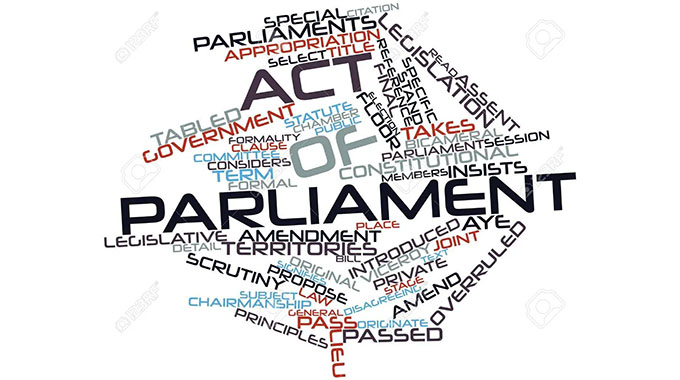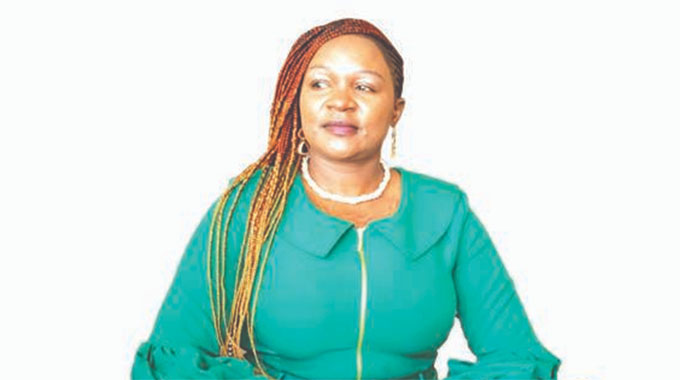EDITORIAL COMMENT: PVSO Act amendments make good sense

THERE has been a flurry of lobbying over the proposed amendments to the Private Voluntary Organisations Act, with many of those opposing these by the look of it not having read the Bill.
The principal Act, which replaced very similar legislation going right back into early colonial days, imposes the need for registration and reporting of all voluntary organisations that collect funds from the public.
A private club that relies purely on what its members pay in does not count.
Basically, the registration requirements are fairly simple, in that an organisation needs a clearly defined objective, some sort of executive to run it, and good accounting.
Moving outside the objective, having no one running the organisation and having shoddy accounts open the risk of being de-registered, making it legally impossible to raise funds from the public.
Religious organisations, such as churches, mosques, synagogues and the like, are exempted as are educational trusts, certain other trusts and a lot of activity to do with health.
The requirements of the existing Act and its predecessors explain why even for a church, it has to separate out its charitable functions of relieving distress and register this as a private voluntary organisation.
Generally anything that uses money raised from the public inside or outside Zimbabwe needs to be able to be efficiently and honestly run. No one disagrees.
The amendment Bill closes some loopholes, allows investigation into finances where there is suspicion that money laundering is involved, and makes it very clear that certain organisations that felt they were outside the ambit of the Act can be compelled to register.
That provision was always there, but the Bill makes it clearer. Even exempted trusts, if they seem to be acting as a PVO, can be made to become one. There are a vast number of private voluntary organisations, and most do excellent and needed work and are well run, with quite a few actually having professional accountants among their volunteers so are able to present the clean accounts needed, internally, for contributors and for the watchdog registrar very easily.
Life would be far more difficult for many if these organisations did not exist.
A fair amount of organised lobbying from animal welfare, coping with special needs of children, much of the wildlife protection, environmental concerns such as wetlands and a host of others come through these well-run organisations.
They act, co-ordinate, publicise issues and do many other functions, and usually do them well.
The Registrar of Private Voluntary Organisations has little to do with this large majority, beyond receipting the annual accounts, filing the lists of the latest executive and occasionally listing minor changes in their objectives because of changed circumstances.
A lot of the opposition to the Bill comes from people who object to just one paragraph, barring these organisations from funding political parties or from using their funds to support or oppose a political party.
Objectors say this is already covered by the Political Parties Finance Act, and so they are. The interesting point is that as it takes two to tango, the Bill dries up the source as well as recipient of funds.
For example, a voluntary organisation could send money anonymously. Under the Bill it cannot, and it cannot campaign for or against a party.
This does not diminish political freedom. Anyone can found a political party and that requires very little more than telling the Zimbabwe Electoral Commission that you exist.
The commission can stop you using a name too similar to an existing party already listed, and your logo has to be different from any existing logo.
But that is about all. Parties can raise funds directly from members and supporters, but not from external sources. The only loophole closed by the Bill is to stop foreigners laundering their money through a local voluntary organisation.
The rest of the Bill is largely to meet the growing upgrade in accounting standards and to prevent criminals laundering money or sponsoring terrorism through voluntary organisations.
This is part of the general upgrade in banking standards and the rest we in Zimbabwe, along with the rest of the world, have to live with.
The Financial Action Taskforce, set up by the G7 countries, the largest western economies, is most concerned about these sort of problems and Zimbabwe was on the “watch list” for a few years while we cleaned up and upgraded our banking sector.
The taskforce is still dubious about our voluntary organisations, so the pressure to get the financial side of Zimbabwe’s private voluntary organisations using modern standards, and allowing outfits like the Financial Intelligence Unit to examine accounts, comes from countries like the US, Britain and the like.
Again the overwhelming majority of organisations will not have any problems, just perhaps having to give more details. In certain cases, where risks of money laundering are higher, extra information can be demanded.
The Bill concentrates on these financial standards, at some length. But in summary, a voluntary organisation escapes much if it is very open about what it does, has maximum transparency and keeps good financial records.
It is difficult to be against such moves, since most of them need that anyway to attract the public support.
One set of new sections deals with the problem of an executive that is misbehaving or is dishonest. The main Act had a section that allowed the executive to be suspended or fired. The Supreme Court disliked it and threw it out. The Bill brings this back, but in quite different form.
Now trustees are appointed in these cases, with a High Court judge approving the trustees. The organisation remains independent and in existence while investigations continue, but under trustees.
We need to remember that private voluntary organisations need not be popular, or even have general public approval. But they have to be clear and open about what they do.
It would be quite permissible, for example, to set up an organisation that lobbied and pressed for greater LGBTQ rights, so long as it was clear about this aim, as well as one that wanted to build an orphanage, again being clear and open with all donations receipted and the hiring of contractors not enriching the executive.
The Bill is not some dramatic imposition barring civil society from operating. If anything it wants more in that society.
But what it does do is raise the administrative and financial standards, ensure that what an organisation says it is there for is what it does, and seeks to ensure that those who want a political role join a party or found a party or stand as a candidate, rather than hide behind a front.










Comments